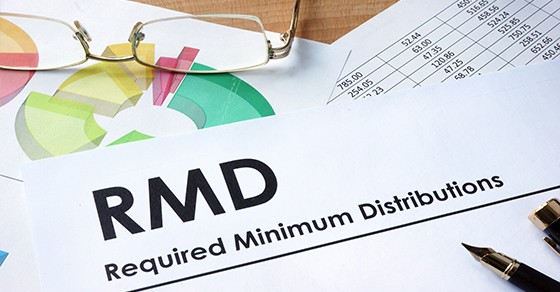 If you have a traditional IRA or tax-deferred retirement plan account, you probably know that you must take required minimum distributions (RMDs) when you reach a certain age — or you’ll be penalized. The CARES Act, which passed last March, allowed people to skip taking these withdrawals in 2020 but now that we’re in 2021, RMDs must be taken again.
If you have a traditional IRA or tax-deferred retirement plan account, you probably know that you must take required minimum distributions (RMDs) when you reach a certain age — or you’ll be penalized. The CARES Act, which passed last March, allowed people to skip taking these withdrawals in 2020 but now that we’re in 2021, RMDs must be taken again.
The basics
Once you attain age 72 (or age 70½ before 2020), you must begin taking RMDs from your traditional IRAs and certain retirement accounts, including 401(k) plans. In general, RMDs are calculated using life expectancy tables published by the IRS. If you don’t withdraw the minimum amount each year, you may have to pay a 50% penalty tax on what you should have taken out — but didn’t. (Roth IRAs don’t require withdrawals until after the death of the owner.)
You can always take out more than the required amount. In planning for distributions, your income needs must be weighed against the desirable goal of keeping the tax shelter of the IRA going for as long as possible for both yourself and your beneficiaries.
In order to provide tax relief due to COVID-19, the CARES Act suspended RMDs for calendar year 2020 — but only for that one year. That meant that taxpayers could put off RMDs, not have to pay tax on them and allow their retirement accounts to keep growing tax deferred.
Begin taking RMDs again
Many people hoped that the RMD suspension would be extended into 2021. However, the Consolidated Appropriations Act, which was enacted on December 27, 2020, to provide more COVID-19 relief, didn’t extend the RMD relief. That means if you’re required to take RMDs, you need to take them this year or face a penalty.
Note: The IRS may waive part or all of the penalty if you can prove that you didn’t take RMDs due to reasonable error and you’re taking steps to remedy the shortfall. In these cases, the IRS reviews the information a taxpayer provides and decides whether to grant a request for a waiver.
© 2021
---
The information contained in the Knowledge Center is intended solely to provide general guidance on matters of interest for the personal use of the reader, who accepts full responsibility for its use. In no event will CST or its partners, employees or agents, be liable to you or anyone else for any decision made or action taken in reliance on the information in this Knowledge Center or for any consequential, special or similar damages, even if advised of the possibility of such damages.